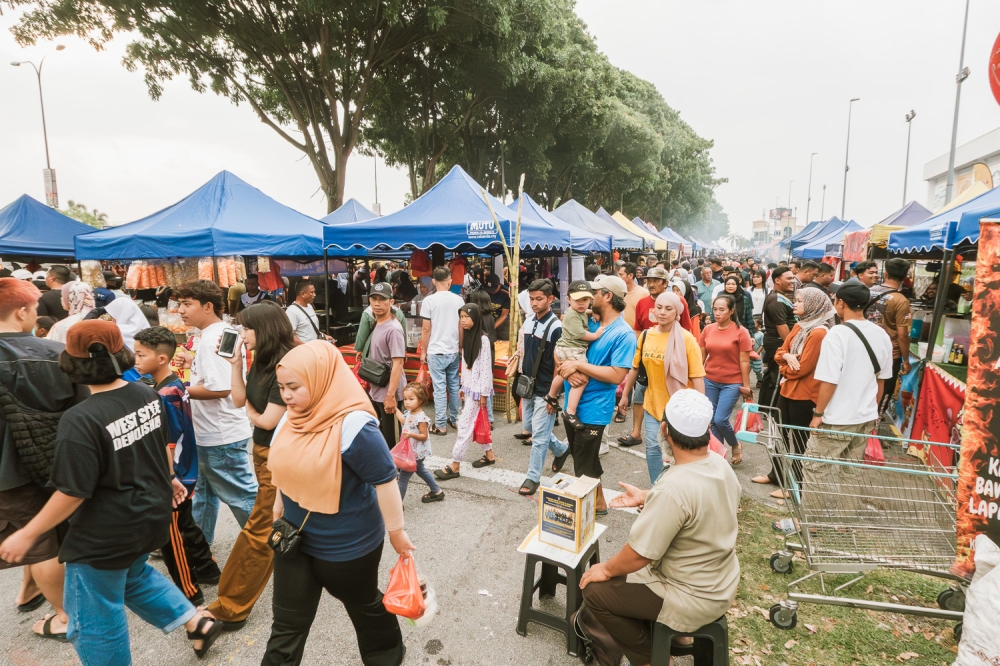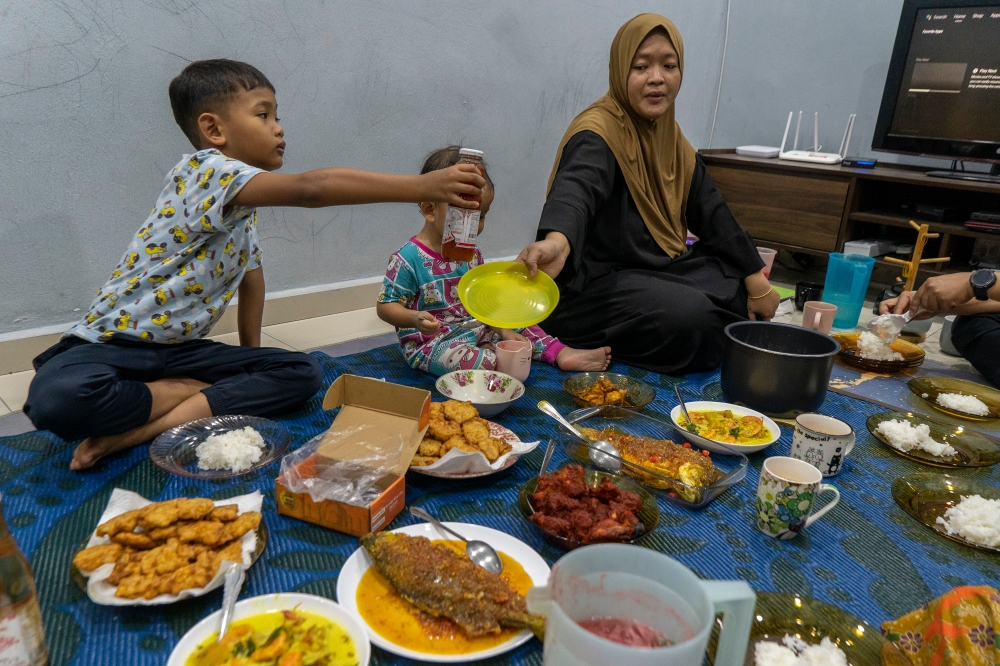KUALA LUMPUR, March 18 — Traditionally a highlight for Malaysians during the fasting month, several Muslims have conceded that high prices and lacklustre quality of dishes being sold have turned them off Ramadan bazaars.
Speaking to Malay Mail, those polled said in recent years after the Covid-19 pandemic, Ramadan bazaars have carried a negative image of being overcrowded, overpriced, and a symbol of excess.
“Some individuals choose to steer clear of Ramadan bazaars due to concerns such as dissatisfaction with product quality, perceived high prices, or worries about wastefulness. Personally, I find the risk of impulse buying leading to excess uneaten food to be the primary reason for this avoidance,” Syira Zubir, 30, told Malay Mail.
The medical officer said she observed an emerging trend towards smaller, more intimate iftar gatherings, such as picnics or home gatherings.
She said these settings offer better control over food quantity, quality and spending, aligning with the desire for meaningful and sustainable Ramadan practices.
“However, it could also reduce the vibrancy and economic vitality that the bazaars bring to communities,” she said.
She added that she would opt to prepare meals at home or support local restaurants by ordering in or by delivery, rather than purchasing food from the Ramadan bazaars.

Dismissing time constraints as a hurdle, she explained that it is entirely feasible with proper planning and effort.
“I would start the meal prepping on weekends, relying on simpler recipes, and possibly sharing cooking responsibilities within a household can make this more feasible,” she said.
Muhammad Aidiel, a 40-year-old private sector worker said the surging food prices drove many to seek alternatives like buffet-style restaurants which offered better value for money.
“Many people now prefer to dine at buffet-style restaurants as it offers better value for money. For example, for RM35, you can get a variety of food options compared to only being able to buy three to four items at the bazaar for the same price.
“We have many options available, such as restaurants or roadside stalls, where a meal costs only RM7 to 10, making it more convenient and economical,” he said.
He said despite the allure of tradition, he recognised the economic strain on vendors and the growing preference for affordable dining options.
“Even with the soaring prices, people will continue to frequent Ramadan bazaars for their iftar meals, particularly those who find themselves short on time to cook after returning home at 6pm,” he said.
On the other hand, an author who preferred to be known as Mikael said despite Ramadan bazaars being overrated and overpriced, they continue to draw crowds due to their unique once-a-year appeal.
He said even well-known vendors were experiencing a drop in food quality possibly because they prepared in large portions, making it challenging to maintain consistent quality.
“Regardless of the criticism directed towards Ramadan bazaars, there are still people who will attend them which means they have not fully rejected the idea. There are people who still love the Ramadan bazaars,” he said.
As an alternative to purchasing food from Ramadan bazaars, he mentioned that he would either prepare his own meals or visit mosques that offer iftar meals.
Also weighing on the same matter, Elias Dolah, a 24-year-old site engineer said while prices may be on the rise, the vibrant atmosphere of the bazaar remained unchanged, with crowds flocking especially during the early period of Ramadan.
“Inflation affects everything economically but not the environment at all. Yes, the prices are going up, but the vibes are still there and the people are flooding the bazaars,” he added.
Asked about the larger iftar events, he said that older individuals tend to favour these types of gatherings, which also serve as a platform for non-Muslims to observe the unity among Muslims, especially during Ramadan.
He then went on to say that the communal iftar experiences would remain unaffected as many iftar events are hosted at mosques or surau which ensures that the spirit of community and togetherness can still be upheld.
Drawing on the culture of night markets, Ramadan bazaars usually take place in the same spots as those markets with traders renting a lot to set up stalls and serve the area with dishes normally associated with “buka puasa” or the breaking of fast.
Earlier this month, Deputy Domestic Trade and Cost of Living Minister Fuziah Salleh told Malay Mail in an interview that the government will be mandating Ramadan bazaars to offer Menu Rahmah during the fasting month to provide financial relief to individuals and families alike.






















